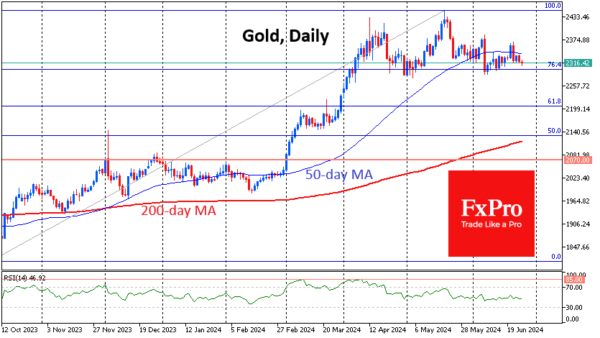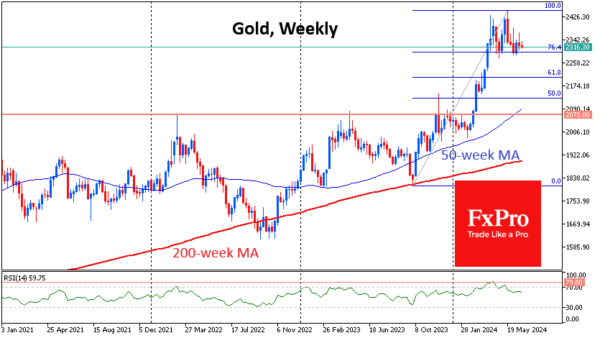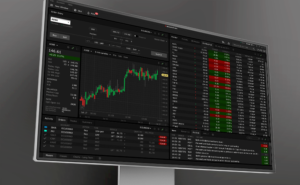Gold has been under moderate pressure since last Friday, when the price reversed sharply from above $2360. This is an important signal from the bears that they retain control of the market, forming a trend of lower local highs.
On Wednesday morning, the price temporarily dipped below $2310, returning to the support area of the last two months near $2300. This brought the price close to an important level for the market, promising an imminent battle between bulls and bears.

We see gold’s momentum from the October 2023 lows to the March 2024 highs. This was a principal reversal from the 200-week moving average.
Since then, the market balance has shifted to sell on the upside, indicating the prevalence of profit-taking. But so far, we are seeing a shallow correction, typical of strong bull markets, as the drawdown is being brought back on the decline to 76.4% of total momentum instead of the classic 61.8% (at $2200).

However, the downside momentum in gold is hard to ignore. There were strong selloffs on 22 April, 22-23 May, and 7 June. On 21 June, the decline was not so impressive but very instructive, as it prevented the price from returning above the 50-day moving average and absorbed the previous day’s bullish candle.
Clearly, the bears in this market are strongly forming a reversal pattern to the downside. A rising dollar, helped by a further hawkish shift by FOMC members, is additionally playing on the sellers’ side.
If the third attempt to go below $2300 is successful for the bears, the gold price could move into the $2200 area rather quickly, as the area between these levels does not contain any previous significant stops. The next destination could be the $2070 area, which has been working as resistance for a long time.
If we are talking about important milestones on the way up, they are $2340 (50-day average), $2360 (previous peak), and $2450 (global high).









